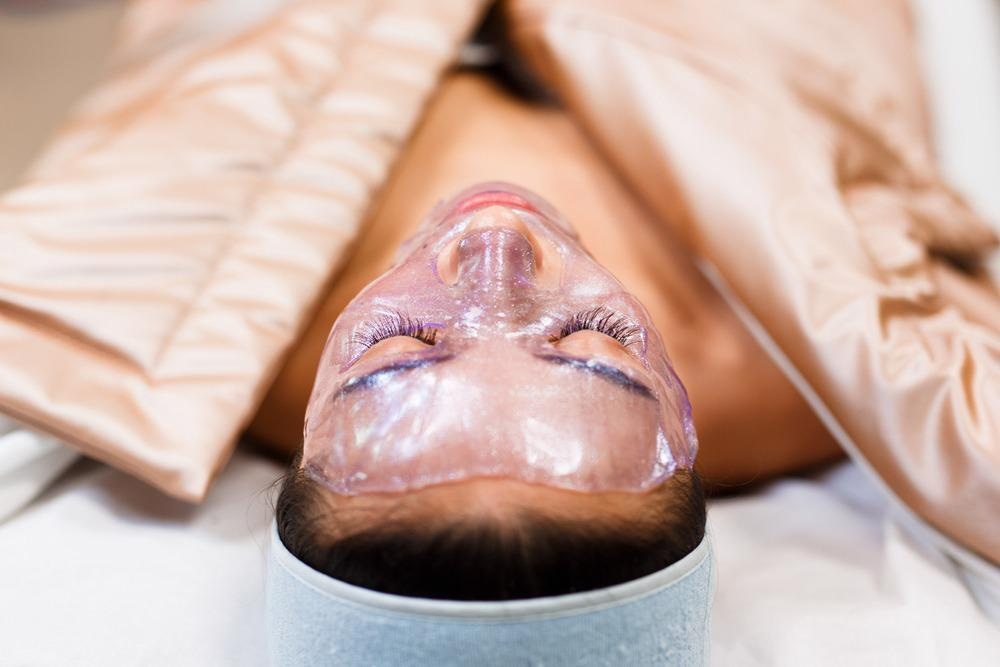From healthcare to manufacturing, innovations in 3D printing technology are not only changing the way we make things but adjusting the realms of possibility. How can we use this technology in the skincare industry to produce products such as 3D printed custom face masks?

Image Credit: ILIA NEZNAEV/Shutterstock.com
Recently, the additive manufacturing industry entered the cosmetic and skincare space, with scientists leveraging new technologies to enhance their ability to create customized products. Here, we discuss the latest 3D printed innovations that have emerged from a collaboration between BASF and Natural Machine: customized 3D printed face masks and eye masks.
Printing Cosmetic Face Masks
Over recent years, the beauty industry and skincare sectors have begun to greatly benefit from advances in 3D printing. For example, 3D printed skin offers the industries a means of testing their products without relying on animal testing, and 3D printed production methods have also been leveraged to enhance personalization capabilities alongside mass production.
Now, a new advancement from a recent collaboration between BASF, a German personal care company, and Natural Machines, an industrial solutions company, will see 3D printed face masks and eye masks emerge on the market soon.
Previously, face masks and eye masks had faced a major hurdle in that they could only be produced as a one-size- (and shape) fits-all. There is huge variation between people’s face shapes and the position, size, and shape of their features. This limitation greatly restricts the potential consumer experience and efficacy of the product.
To overcome this limitation, BASF and Natural Machine are developing individual, custom-fit masks with a 3D printer to suit the needs of the individual.
The face mask printers are expected to be commercially available by next year. The partnership will leverage BASF’s expertise in cosmetic ingredients while utilizing Natural Machine’s experience in developing 3D printing innovations for the food sector.
Additionally, BASF’s privileged position within the personal care market gives the team the opportunity to commercialize their innovation in this space, bringing 3D printed skincare to the masses and opening up the possibilities of the industry.
Opening the Door to Mass Customization
BASF aims to use 3D printing to offer a unique, holistic solution to the personal care industry, comprised of machines, cartridges, and skincare formulas. The team’s initial tests have demonstrated that face masks and eye patches can successfully be 3D printed based on BASF ingredients.
Further Reading: Alginate-Based 3D Printed Inks For Biomedical Models
Over the coming months, BASF will work on adapting the technology to develop an entirely novel approach to mass-producing personalized face masks based on biological and biodegradable solutions.
The greater freedom offered by 3D printing facemasks in comparison to traditional, subtractive manufacturing allows custom-made products to be produced to fit specifications unique to the individual customer without the need for producing molds or causing production delays.
The time-consuming and costly processes required to produce personalized products with traditional manufacturing are overcome by the additive nature of 3D printing.
The market for personalized skincare has shown rapid growth in recent years. It is predicted that innovations such as that produced by the partnership between BASF and Natural Machine will help this space grow further and open up more potential capabilities in the skincare and cosmetic market.
3D Printing Innovations Will Advance the Skincare/Cosmetics Sectors
BASF and Natural Machine are not the only companies working on personalizing the skincare/cosmetics industry. Major industry player Neutrogena is also developing personalized face masks with the help of 3D printing. The innovation uses smartphone photos to micro-3D print a face mask to suit the customer’s skin type and desired treatment.
Their system 3D prints the mask so that its active ingredients are uniquely positioned, placing them just where the customer needs them, rather than applying them to the entire face. This innovation not only overcomes the limitation of one-size-fits-all face masks but also overcomes the limitation of one-treatment-fits-all.
Not every person requires the same skin care treatments, and not every area of every person’s face requires the same treatment. Dry and oily patches, issues with skin tone, and blemishes are often restricted to certain areas of the face. The 3D printed mask from Neutrogena addresses this, producing one mask to tackle multiple issues simultaneously.
This and other 3D printed innovations that are also emerging in the skincare/cosmetics space will likely facilitate a shift in the industry towards personalized products.
References and Further Reading
Deanna Pai. (2017). 3D Printing Skin Is Real: Here's What You Need to Know. [Online]. Allure. Available at: https://www.allure.com/story/3d-printing-skin (Accessed 9 November 2021)
Emily Folk. (2019). How 3D Printing is Changing the Cosmetics Industry. [Online]. 3D Print. Available at: https://3dprint.com/254128/dhow-3d-printing-is-changing-the-cosmetics-industry/ (Accessed 9 November 2021)
Mikahila L. (2021). BASF & Natural Machine to Create Customized 3D-Printed Skincare Masks & Eye Patches. [Online]. 3D Natives. Available at: https://www.3dnatives.com/en/basf-natural-machine-3d-printed-skincare-masks-eye-patches-181020214/#! (Accessed 9 November 2021)
Tia Vialva. (2019). Neutrogena to launch personalized 3D printed face masks. [Online]. 3D Printing Industry. Available at: https://3dprintingindustry.com/news/neutrogena-to-launch-personalised-3d-printed-face-masks-146307/ (Accessed 9 November 2021)
Disclaimer: The views expressed here are those of the author expressed in their private capacity and do not necessarily represent the views of AZoM.com Limited T/A AZoNetwork the owner and operator of this website. This disclaimer forms part of the Terms and conditions of use of this website.